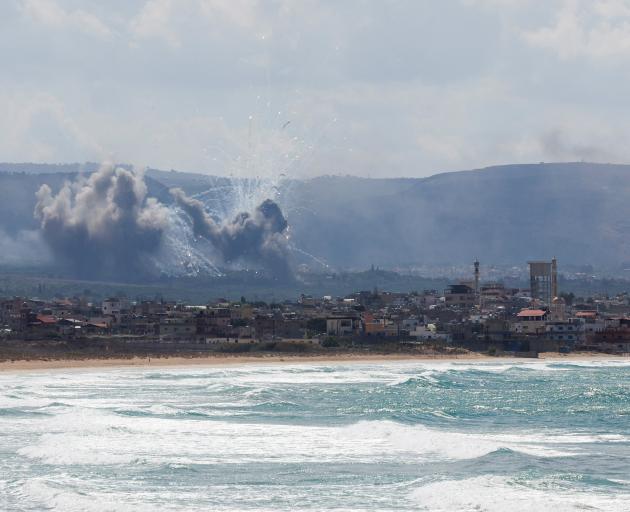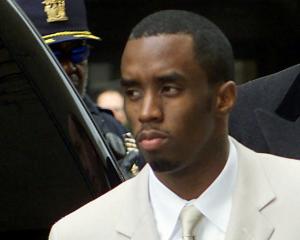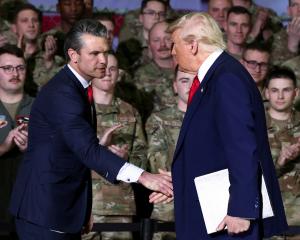
"We are deepening our attacks in Lebanon, the actions will continue until we achieve our goal to return the northern residents safely to their homes," Gallant said in a video published by his office on Monday. "These are days in which the Israeli public will have to show composure."
Earlier, Israeli army spokesperson Avichay Adraee said that air strikes on houses in Lebanon, in which "Hezbollah hid weapons" are imminent.
Residents of southern Lebanon received calls from a Lebanese number ordering them to immediately distance themselves 1,000 metres (3,280 feet) from any post used by Hezbollah, a Reuters reporter in the south, who received the call, said.
Lebanon's information minister Ziad Makary said his ministry had received a similar call ordering the building to evacuate, but said the ministry would do no such thing. "This is a psychological war," Makary told Reuters.
In a televised statement earlier, the Israeli military spokesperson Rear Admiral Daniel Hagari issued a similar warning and said it was being "distributed in Arabic on all networks and platforms in Lebanon."
Asked by reporters about a possible Israeli ground incursion into Lebanon, Hagari said "we will do whatever is needed" in order to return evacuated residents of northern Israel to their homes safely, a war priority for the Israeli government.
The UNIFIL peacekeeping force in southern Lebanon had "seen an intensification of bombardments throughout the area of operations, close to the Blue Line but also deeper south," its spokesperson Andrea Tenenti told Reuters, referring to the line demarcating the Lebanese-Israeli border.
The latest attacks came amid some of the heaviest cross-border exchanges of fire in almost a year of conflict raging alongside the war between Israel and Hamas in Gaza.
Hagari presented in a media briefing an aerial video of what he described as Hezbollah operatives trying to launch cruise missiles from a civilian house in Lebanon, and the subsequent Israeli strike moments before it was launched.
"Hezbollah is endangering you. Endangering you and your families," Hagari said.
There was no immediate comment from Hezbollah on the warnings.
LOW FLYING WARPLANES
Israeli warplanes carried out an intense wave of air strikes on towns along Lebanon’s southern border and even further north on Monday morning, according to Reuters witnesses.
A rocket hit an uninhabited mountainside east of the Lebanese port city of Byblos on Monday, a resident and Lebanese state media said, in an area that has not previously been hit by airstrikes. The area falls between Christian and Shi'ite villages.
Reuters reporters in the southern port city of Tyre could hear warplanes flying low over southern Lebanon and hear a series of airstrikes nearby.

In addition to striking the Bekaa Valley region of eastern Lebanon, warplanes also carried out airstrikes on the Hermel area in northern Lebanon, Hezbollah's al-Manar reported.
Lebanon's health ministry said at least one person was killed and six wounded in the Israeli strike on the Hermel region in northeast Lebanon. Another 11 were wounded in a strike on the southern town of Aitarun, the ministry said in a statement.
Gallant said on Monday that he had spoken with US Secretary of Defense Lloyd Austin about the military's latest strikes against Hezbollah in Lebanon.
"Provided the Secretary with a situation assessment of Hezbollah threats and briefed him on IDF (Israel Defence Forces) operations to degrade Hezbollah’s ability to launch attacks against Israeli civilians," Gallant said on X.
"We also discussed the wider regional situation and the threats posed by Iran and its proxies," he added.
Hezbollah and Israel exchanged heavy fire into Sunday, as the Lebanese militant group sent rockets deep into northern Israeli territory after facing intense bombardment.
Hezbollah deputy chief Naim Qassem told mourners at the funeral of one of the group's commanders killed last week in Beirut: "We have entered a new phase, the title of which is the open-ended battle of reckoning."
Hezbollah has come under intense pressure since thousands of pagers and walkie-talkies used by Hezbollah members exploded on Tuesday and Wednesday.
The attack, an unprecedented breach of security, was widely blamed on Israel, which has not confirmed or denied responsibility.
On Friday, an Israeli airstrike on Beirut's southern suburb targeted senior Hezbollah commanders killing 45 people, according to the Lebanese health ministry. Hezbollah said 16 members of the group were among the dead, including senior leader Ibrahim Aqil and another commander, Ahmed Wahbi.













